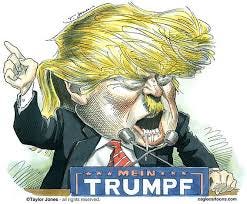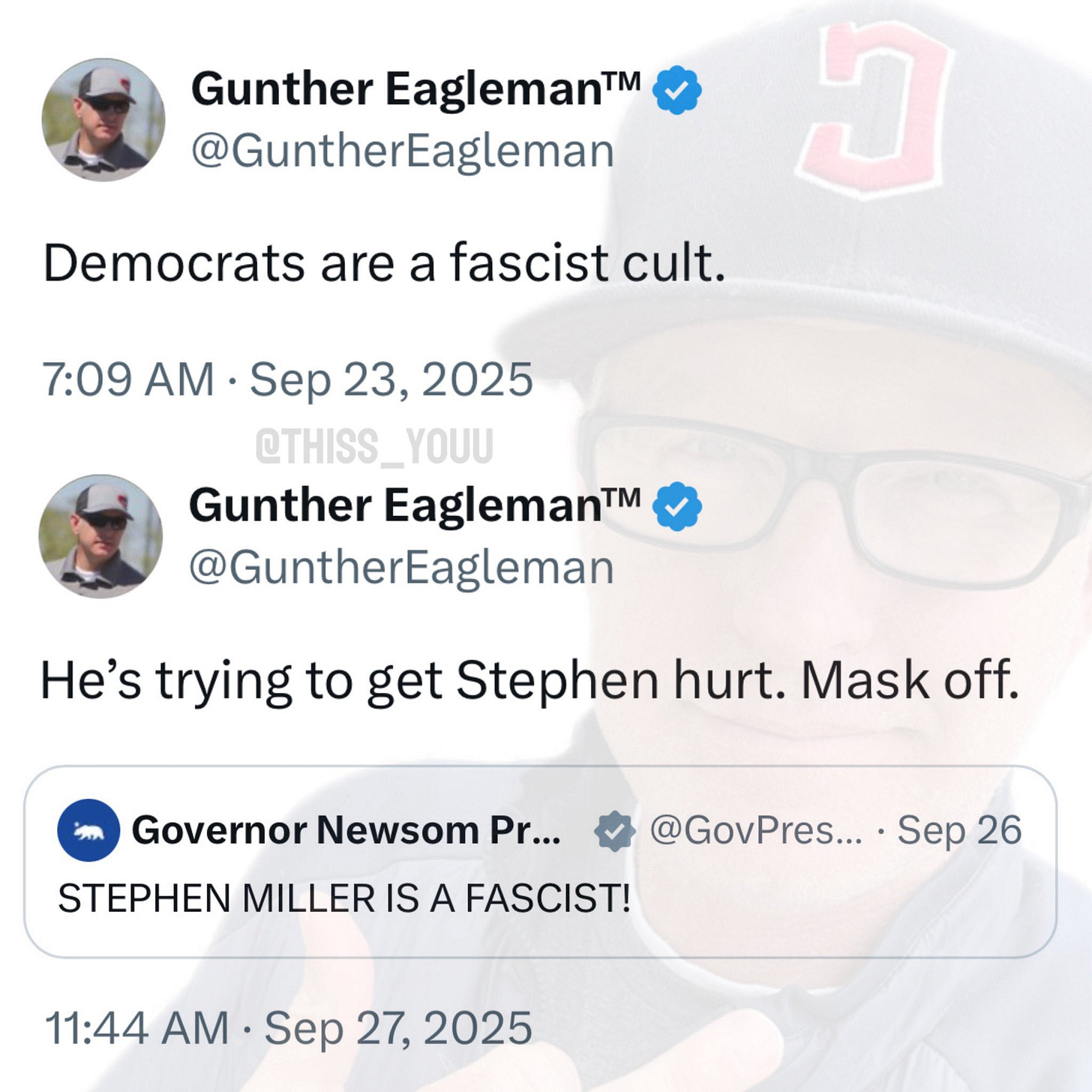Kinzinger: Calling Out Fascism Is Vigilance - Not Violence
How a new right-wing tactic tries to silence critics—and why Americans must keep speaking plainly.
By Adam Kinzinger
Recently the right has tried a new rhetorical trick: claiming that even using the word “fascist” is itself a call to violence.
In their telling, to call someone a fascist is to paint a target on them. They insist that the label is so dangerous that it must not be uttered at all.
And by shaming or intimidating people into silence, they hope to inoculate themselves against the accusation—even when their own words and actions invite the comparison.
I know political rhetoric can be heated. I’ve served in Congress and in uniform. I’ve sat in rooms where words have life-or-death consequences.
But there is a difference between inciting violence and simply describing reality. To say that someone’s conduct or philosophy bears the hallmarks of fascism is not violence; it is vigilance. Democracies survive only when people are free to describe what they see with clear eyes and unflinching language.
Miller’s astonishing hypocrisy. The hypocrisy behind this tactic is glaring. Take Stephen Miller, the longtime Trump adviser whose own statements and policy record are easy to find.
Miller rails about “law and order,” spins conspiracies about immigrants, and regularly paints political opponents as enemies of the nation. Yet he insists that calling his ideology fascist is beyond the pale.
When challenged, he acts as though naming the danger is itself dangerous. Yesterday, he raged at Gov Newsom calling him fascist…implying it was a call to violence. However, take a look at a smattering of his own statements and tweets:
Or look at online troll Gunther Eagleman, who thrives on provocation. Eagleman slings insults and promotes authoritarian talking points. But the moment someone uses the word “fascist” to describe Stephen Miller (again, Gov. Newsom yesterday), he pivots to victimhood, claiming the label is an attempt to draw physical violence. Here:
The same people who mock “cancel culture” have perfected their own version of it.
Warnings from history. I don’t even need to mention the number of times the President has called his opponents or Democrats Fascist, Communist, etc. This has been well documented. Somehow he is immune.
This is more than double-talk. It’s a calculated strategy.
By declaring a basic descriptive word off limits, they shift the debate away from their own words and actions and onto the supposed incivility of their critics. They want Americans to argue about tone, not truth. And if enough people accept their premise, they can continue to radicalize politics without ever being honestly named.
It’s like demanding that a doctor never use the word “cancer,” because saying it might make the disease worse. The illness doesn’t go away because we whisper.
History offers sharp warnings.
In Europe in the 1920s and 1930s, authoritarian movements thrived in part because citizens and leaders hesitated to use plain words. They worried about sounding shrill, about dividing their countries further, about inflaming passions.
By the time many were ready to name fascism, the damage was done. I’m not saying today’s United States is 1930s Europe. I am saying that fear of speaking clearly is how danger spreads.
Euphemisms comfort the comfortable. The right’s tactic works only if the rest of us cooperate. And sometimes we do, out of fatigue or a misplaced sense of balance.
We worry about being accused of overreacting. We think maybe it’s better to talk about “strongman politics” or “populism” instead. But euphemisms don’t inspire action. They comfort the comfortable. They allow those pushing authoritarian ideas to keep moving the goalposts.
We need to remember what free speech is for.
The First Amendment was not written to protect only polite opinions. It exists precisely so citizens can call out threats to liberty—whether those threats come cloaked in religious rhetoric, “patriot” branding, or populist memes.
A healthy democracy needs passionate debate and sometimes harsh words. Calling something fascist when it fits is not violence; it is self-defense.
I think about the people I served with in Iraq who risked their lives believing that freedom and open debate were worth it. They did not sacrifice so that Americans would be too timid to describe authoritarianism in plain English. They fought so we could speak the truth, even when it offends the powerful.
Bottom line. So let’s be plain: If a movement openly undermines elections, glorifies political violence, and seeks to put government power in the hands of a single strongman, history has a word for that. Refusing to speak the word only emboldens those who would bring that history back.
The health of our republic depends on our willingness to be honest—even when honesty is uncomfortable.
This is a moment for courage. Do not be intimidated. Call things by their right names. Share the evidence. Speak up in your communities, online and off.
America has endured because ordinary citizens told the truth even when it was unpopular or risky. The next chapter of that story is ours to write—if we are bold enough to tell it.
Former Republican Rep. Adam Kinzinger was banished from his party for serving on the House Select Committee to Investigate the January 6th Attack on the U.S. Capitol. Subscribe to his newsletter here.
Image: Boston Political Review.



